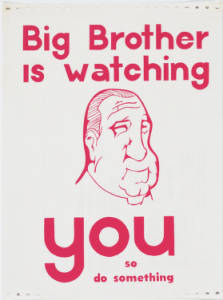A US appellate court has reversed a $25 million verdict against the US Internet Service Provider Cox Communications in what might be seen as a defeat for record label BMG, which had sought to hold Cox liable for copyright infringement for its subscribers who were sharing pirated files online. But looking at the judgment, and despite what looks like a set back for BMG Rights Management, it can be argued that its actually a win in the battle against piracy
The decision, by a three-judge panel of the 4th Circuit Court of Appeals, returns the case to the District Court for a new trial, based on a decision that there was an error in jury instructions. Irrelevant of arguments about safe harbor protection at the heart of the case, Cox might not been responsible for users' infringement as companies are only liable for contributing to infringement if the companies either know about acts of infringement, or are wilfully blind to them, and the appellate court ruled that the trial judge, District Judge Liam O'Grady, incorrectly told the jurors that they could find Cox liable if it knew or should have known about infringement by users. "The formulation 'should have known' reflects negligence and is therefore too low a standard," the appellate judges wrote. "Because there is a reasonable probability that this erroneous instruction affected the jury’s verdict, we remand for a new trial."
But, and its a big but, the 4th Circuit took a long hard look at how and why Cox would be protected by US "safe harbor" provisions that protect service providers from liability when users infringe copyright. - and here the Court ruled against Cox on a key point. The DMCA provides a degree of protection to ISPS and other platforms that respond expeditiously to takedown requests. But one of the requirements is that the ISP and other intermediaries to have "adopted and reasonably implemented … a policy that provides for the termination in appropriate circumstances of subscribers … who are repeat infringers." The appeals judges said that as it stands, Cox wasn't entitled to rely on safe harbor because it does very little if anything even when told about repeat offenders, re-affirming the jury decision that sided with BMG and awarded $25 million against Cox when they found the broadband carrier liable for piracy by its subscribers.
The entertainment industry will be delighted with the ruling by the appeals court in as much as it has upheld the federal judge's conclusion that the safe harbor provision of the Digital Millennium Copyright Act require a meaningful implementation of a policy that terminates the service of repeat copyright infringers. The appellate judges agreed with BMG that Cox wasn't entitled to rely on the safe harbor protections, writing that the broadband provider's policy was lacking. Cox had in place a "13-strike" repeat-offender policy, meaning that the company would consider terminating subscribers after they received 13 notices of copyright infringement. In practice, it has been alleged the company went to great lengths to avoid disconnecting people with the court acknowledging "Cox formally adopted a repeat infringer 'policy,' but ... made every effort to avoid reasonably implementing that policy ...... Indeed, in carrying out its thirteen-strike process, Cox very clearly determined not to terminate subscribers who in fact repeatedly violated the policy." It was alleged that Cox really maintained an "under the table policy purporting to terminate repeat infringers while actually retaining them as high-speed internet customers."
The decision noted that in the two years before BMG sued, Cox only terminated a total of 21 people, and in 17 cases, the subscribers had failed to pay their bills on time or exceeded their bandwidth caps. During that time, Cox issued more than 500,000 email warnings and temporary suspensions, according to the decision.
"Cox failed to qualify for the ... safe harbor because it failed to implement its policy in any consistent or meaningful way -- leaving it essentially with no policy," the appellate court decided.
Giving the appellate courts decision and dismissing a number of Cox's arguments, Judge Diana Motz was clearly unimpressed with Cox's efforts to stem piracy by its customers saying "Indeed, the risk of losing one's Internet access would hardly constitute a 'realistic threat' capable of deterring infringement if that punishment applied only to those already subject to civil penalties and legal fees as adjudicated infringers" and saying a "ISP has not 'reasonably implemented' a repeat infringer policy if the ISP fails to enforce the terms of its policy in any meaningful fashion. Here, Cox formally adopted a repeat infringer 'policy,' but ..... made every effort to avoid reasonably implementing that policy. Indeed, in carrying out its thirteen-strike process, Cox very clearly determined not to terminate subscribers who in fact repeatedly violated the policy." Motz added that failure to implement a consistent and meaningful repeat infringer policy essentially means it has no policy and can't be entitled to a safe harbor defence.
https://www.documentcloud.org/documents/4364615-Bmgcox.html
https://www.mediapost.com/publications/article/313895/court-reverse-25-million-copyright-verdict-agains.html
https://www.hollywoodreporter.com/thr-esq/appeals-court-rules-isps-copyright-trouble-not-enforcing-meaningful-repeat-infringer-policy-1080852


No comments:
Post a Comment